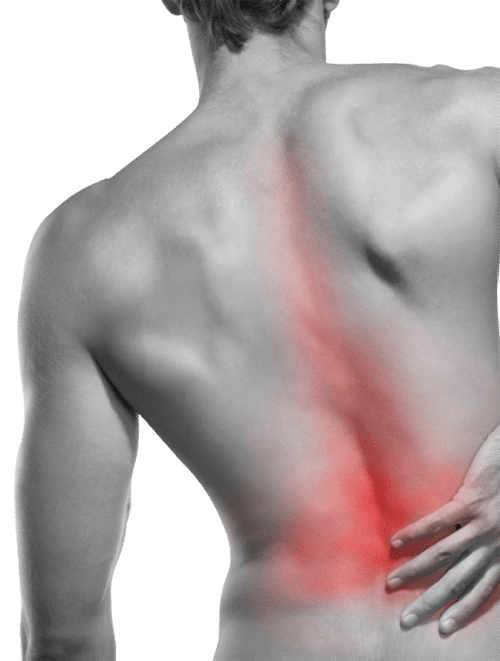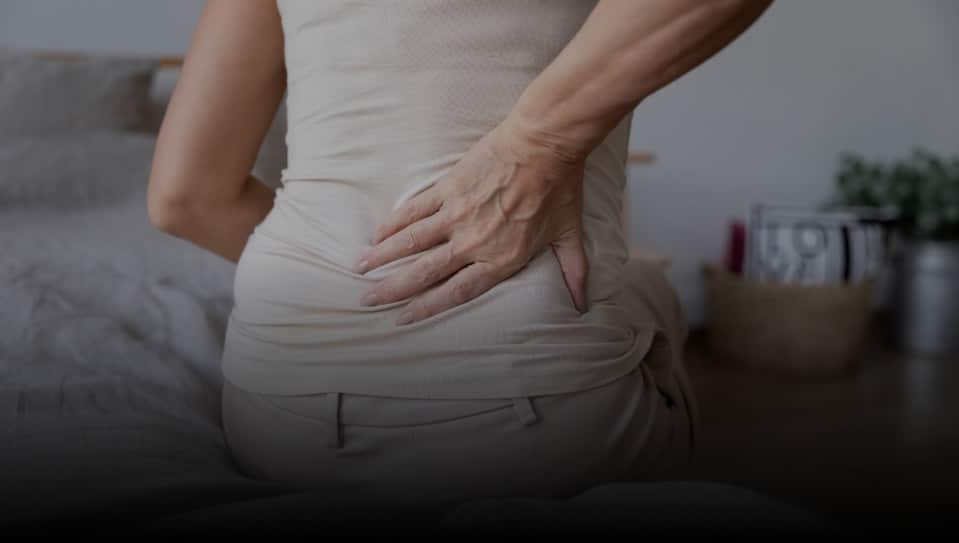Pregnancy is a beautiful journey that comes with its own set of challenges and joys. However, for many expectant mothers, it also brings the unwelcome companion of back pain. The physical and hormonal changes that occur during pregnancy can put a strain on the back, causing discomfort and pain. At New Jersey Back Center, led by board-certified interventional pain specialists, we understand the unique needs of pregnant women dealing with back pain.
What Causes Back Pain During Pregnancy
Weight Gain
One of the most noticeable changes during pregnancy is weight gain. As your baby grows and develops, the body naturally adds pounds to accommodate this new life. While weight gain is a normal and healthy part of pregnancy, it also presents a challenge to your back. The additional weight places an increased load on your spine and back muscles. The lumbar region bears the brunt of this extra pressure. This increased stress on the lower back can lead to discomfort and pain, especially as your pregnancy progresses.
Hormonal Changes
Hormonal fluctuations are an integral part of the pregnancy journey. Relaxin is a hormone that relaxes the ligaments in the pelvic area, making the pelvis more flexible and accommodating for childbirth. However, relaxin doesn’t discriminate between the ligaments of the pelvis and those in other parts of the body. This means that while it prepares the pelvic region for childbirth, it can also affect other ligaments and muscles. This can contribute to instability in your back, potentially leading to pain and discomfort.
Postural Changes
The physical changes that accompany pregnancy can lead to alterations in your posture. As your baby bump grows, your center of gravity shifts forward. In response, you may compensate by arching your back or leaning backward to maintain balance. While these adjustments help you stay steady on your feet, they can strain your back muscles. The changes in posture can cause added stress on your spine, particularly the lumbar region. This strain, compounded by the weight of your growing baby, can result in persistent back pain.
Stress on Pelvic Joints
As your pregnancy advances, the increasing weight and hormonal changes can also put stress on your sacroiliac joint. The sacroiliac joint connects the sacrum (the triangular bone at the base of the spine) to the pelvis. This joint is integral for stability and movement in the lower back and pelvic region. The combination of relaxin-induced ligament relaxation and the added weight can lead to sacroiliac joint dysfunction, a common cause of lower back pain during pregnancy. This can manifest as sharp, shooting pains in the lower back or buttocks.
Safe Back Pain Treatment Options for Pregnant Women
Finding relief from back pain during pregnancy is essential for your well-being and the health of your baby. At New Jersey Back Center, we specialize in minimally invasive pain treatments, and we prioritize the well-being of our patients. Here are some safe and effective lifestyle recommendations and treatment options for pregnant women suffering from back pain:
- Physical Therapy: Physical therapy is a non-invasive approach to manage and alleviate back pain. A physical therapist can teach you exercises and stretches tailored to your needs. These exercises can strengthen your core muscles, improve posture, and provide relief.
- Heat and Cold Therapy: Applying heat or cold to the affected area can provide temporary relief from back pain. A warm bath or heating pad can help relax tense muscles, while cold compresses can reduce inflammation.
- Supportive Footwear: Choosing the right footwear is crucial. Opt for comfortable, supportive shoes with low heels to maintain proper posture and reduce the strain on your back.
- Pregnancy Pillows: Investing in a pregnancy pillow can make a significant difference in your comfort. These pillows provide support for your back and growing belly while you sleep.
- Gentle Exercises: Low-impact exercises can help ease back pain and improve overall fitness. Activities such as walking, swimming, and stationary cycling are excellent options for pregnant women. Always consult your doctor before starting a new exercise routine.
- Modified Daily Activities: Simple adjustments to your daily routine can help reduce back pain. When standing for extended periods, rest one foot on a stool or low surface to alleviate pressure on your back. When sitting, use a small pillow or cushion for added lumbar support.
- Sleep Position: Sleeping on your side with a pillow placed between your knees can provide relief by maintaining proper spinal alignment. Avoid sleeping on your back.
If your back pain persists or becomes severe, it’s essential to consult an interventional pain specialist at New Jersey Back Center. We diagnose the root cause of the problem and provide tailored solutions. Our board-certified specialists can recommend safe and effective treatments that are suitable for pregnant women.
When to Seek Medical Attention
While mild back pain is common during pregnancy, there are situations where you should seek immediate medical attention. Contact us if you experience any of the following:
- Severe or persistent back pain
- Pain accompanied by numbness or tingling in the legs or buttocks
- Pain that radiates to the abdomen or pelvis
- Signs of infection, such as fever or chills
Practical Tips for Managing Back Pain During Pregnancy
Maintain Good Posture
Good posture is your ally in reducing back pain. By maintaining good posture, you can alleviate unnecessary stress on your back and promote better spinal alignment. Focus on these:
- Stand up straight with your shoulders back.
- Distribute your weight evenly on both feet.
- Avoid locking your knees.
- Engage your core muscles to support your spine.
- When sitting, use a chair with proper lumbar support, and keep your feet flat on the floor.
Avoid High Heels
High heels may be stylish, but they’re best left in the closet during pregnancy. When you wear high heels, you alter your body’s posture, placing additional strain on your back. Pregnancy already shifts your center of gravity forward, and high heels exacerbate this, potentially leading to increased back pain and discomfort. Opt for comfortable, supportive shoes with lower or no heels to maintain proper posture and reduce the risk of back strain during this critical time.
Lift Properly
Lifting objects during pregnancy requires a careful approach to protect your back. If an object is heavy or awkward, seek assistance rather than risking strain on your back. Follow these guidelines while lifting heavy objects:
- Bend at the knees, not at the waist, when picking up items.
- Keep the object close to your body as you lift.
- Avoid twisting your body while lifting; pivot your entire body instead.
Gentle Stretches
Incorporating gentle stretches into your daily routine can be a game-changer in managing back pain during pregnancy. These stretches help relieve muscle tension, improve flexibility, and enhance overall comfort. Consider consulting with a physical therapist or your back doctor for personalized stretching exercises that cater to your specific needs. Pelvic tilts, hamstring stretches, and hip flexor stretches are examples of stretches that can be particularly beneficial during pregnancy, promoting relaxation and reducing back discomfort.
Take Breaks
Whether you have a desk job or spend time on your feet, taking regular breaks is crucial in the battle against back pain. Prolonged sitting or standing can strain your back muscles. Schedule brief pauses to change your position and engage in simple stretches. Standing for long periods? Sit down and elevate your legs when possible. If you’re seated for extended periods, stand up and walk around briefly. These breaks can ease tension and enhance your comfort.
Prenatal Yoga
Prenatal yoga is a specialized form of yoga that caters to the unique needs and changes that occur during pregnancy. It focuses on gentle stretching, relaxation techniques, and breathing exercises tailored to expectant mothers. Prenatal yoga classes are led by instructors experienced in guiding pregnant women safely through yoga poses and sequences. This practice helps alleviate back pain and promotes physical fitness, stress reduction, and emotional well-being during pregnancy.
Manage Back Pain During Pregnancy
Back pain during pregnancy is a common challenge, but it doesn’t have to overshadow this beautiful journey. At New Jersey Back Center, we are committed to providing safe, effective, and minimally invasive treatments to help you find relief and comfort during your pregnancy.
We understand that accessibility is crucial during pregnancy. That’s why we have multiple convenient locations across New Jersey to serve you. Our clinics are easily accessible, with offices in Clifton, Paramus, Woodland Park, Woodbridge, and Scotch Plains. We also offer free insurance verification before your first appointment to streamline the process. Don’t hesitate to reach out to us for expert guidance and personalized care.





